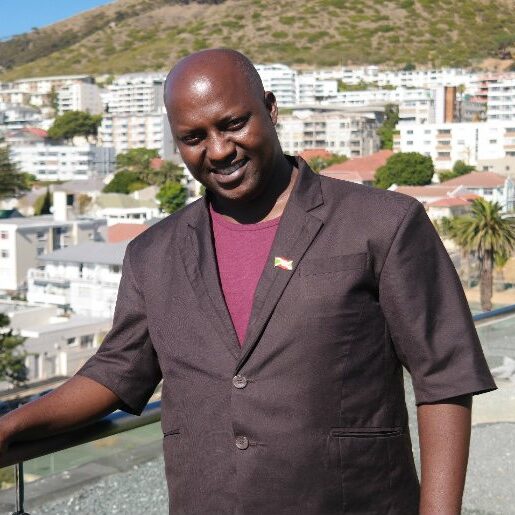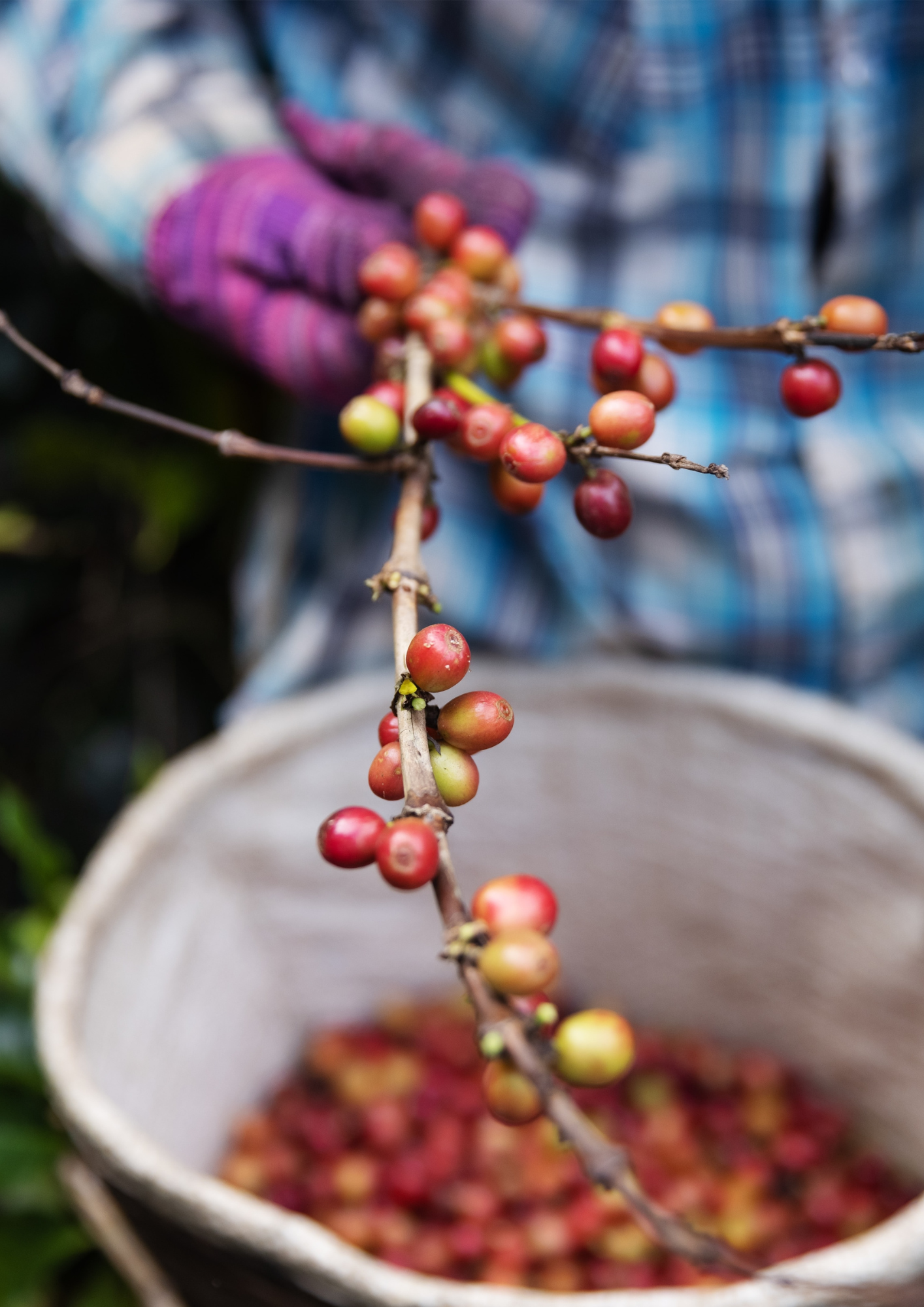About Us
KAVUGANGOMA PULPING/ WASHING STATION (PWS) PRESENTATION OF THE COPROCAME
PREAMBLE
Ruvubu is a big river and park in Burundi and is situated next to the village (farm), where the coffee beans are produced. The river water is used to wash and process the coffee into its new mature state. The Ruvubu River is in central East Africa where waters gather from the most distant portion of the Nile basin. It is about 300 km long. It rises in the north of Burundi, near the town of Kayanza and then does a southward arc through Burundi, being joined by the Ruvyironza River near Gitega.
• COPROCAME Statutes
• Trade Register No: 04786
• Fiscal Identification No: 4000553620
• Export Code: 007/017
COMPANY HISTORY
Where did COPROCAME come from?
COPROCAME is a company created by former employees of AFRICAN PROMOTION COMPANY (APROCO) whose Owner is Mr. KADERI Richard. As a way to thank these employees, he decided to rent the Washing Station to them for 3 years absolutely free. The agreement was for them to use the same processing methods for producing specialty coffee (fully washed), and just recently, the honey process and natural processing methods.
WHO IS RICHARD KADERI IN THE COFFEE INDUSTRY?
After his high school studies in Burundi Bujumbura, when the war started, Richard Kaderi left his country and went to South Africa where he studied maritime engineering. He then moved on to the United States of America, to extend his knowledge and perfect his practical abilities in this same sector. He continued with this routine throughout several countries until he was able to return to his homeland after peace was restored in Burundi. Only on his return to Burundi, did he decide to engage in the coffee industry. Coffee has been in the family for three generations, and dates as far back to 1932, with Richard’s grandfather, who introduced coffee in his region to Mwakiro – Buhinyuza, in Muyinga Province, after completing his studies at the School Group which was called Astrida based in Rwanda and which was administered by the Belgians. (Astrida has now become Butare District). From an early age, Richard had been initiated by his grandfather and other family members who had instilled in him a passion for coffee. Because of this passion he decided to embark on a journey of creating an African Promotion Company with coffee as its first and foremost objective. Out of necessity, prior to the commencement of the project, a socioeconomic study on the analysis of the social and economic situation of the population in the commune of Mwakiro, Richard’s native commune, surveys were carried out among the local population (with men and women of all ages) in order to achieve an accurate socio-economic status.
For Richard KADERI, was the official start of setting up the “African Promotion Company” (APROCO) of which today he is still noted as the initiator for.
Their objectives were:
• production and promotion of specialty coffee
• to increase production
• the increase in the price of cherries to producers
• production of organically grown coffee
• the promotion of fair trade
• maintaining the natural balance and protection of the environment
Richard laid the cornerstone for the founding of the Pulping/ Washing Station (PWS) in his hometown in North Eastern Burundi in Muyinga Province, at the Mwakiro commune, which is 38km from the center of Muyinga. Muyinga Province, is 22km from the center of the Karusi commune and 198km from the capital of Burundi, Bujumbura. It is at an altitude of 1720m and situated on the Kavugangoma Hill, while the Mwakiro commune has more than 2,500 000 (two point five million) coffee trees planted here that respond extremely well to this crop.
Richard Kaderi started up AFRET GROUP (PTY) LTD. which is a distribution centre in South Africa. Their main objective is the distribution of Arabica coffee of Single Origin from Burundi, East Africa. Not only do they import green coffee beans, but have also begun to roast coffee, adding some competition to the current market. Within the last 2 years we have built up an extensive database, which continues to rapidly grow from month to month.
Since the 2017-2018 Coffee Campaign, Richard Kaderi made the decision to rent out the Coffee Washing Station to former employees, who are from the Cooperative COPROCAME, provided that they follow the same cherry processing procedure as APROCO. They have also committed to maintaining all the existing clients from the stock produced at the Kavugangoma PWS.
a local television journalist who did some research on Richard’s work in Burundi, was so impressed, that she approached him to appear on a local television show. See Video and Facebook links below…
https://www.facebook.com/richard.kaderi/videos/10208059850567079/
https://www.facebook.com/richard.kaderi?fref=ts
https://www.facebook.com/ruvubucoffee/
Below are some of our customers’ reviews from abroad:
https://www.allianceforcoffeeexcellence.org/en/cup-of-excellence/countryprograms/burundi-program/2015/24a/kavugangoma-aproco-richard-kaderi/
http://www.trabocca.com/portfolio/burundi-kavukangoma-specialty-coffee/
https://www.amazon.com/Mt-Whitney-Kavugangoma-CoffeeFreshness/dp/B01MXLQT15/ref=sr_1_fkmr0_2_a_it?ie=UTF8&qid=1483954832&sr=8-2fkmr0&keywords=burundi+kavugangoma+review
https://www.joyridecoffeedistributors.com/blog/uncategorized/talkin-to-tobys-estate – see point number 4. “We know coffee comes from a variety of regions….”
http://www.atlascoffee.com/coffees/aproco/

The name Kavugangoma
which actually means, the sound of the drums, originated from the location of the washing station which can be found on the hill of Kavugangoma. In Burundian tradition, all the drums were made out of trees called Umuvugangoma. Some time ago, when Burundi was a Kingdom, this tree was planted and became sacred to the region. The washing station took 4 years to build and is currently doing its eighth production. In addition to that, there are many obvious changes among the population.
Minimize the distance of the route taken by coffee growers to bring the cherries from their fields to the PWS (coffee growers declared walking a great distance in order to get to the washing stations)
Reduced waiting time for coffee growers to hand over their cherries to the staff at the washing station.
Establishment of a more civilized organization, by implementing regulations and procedures in respect of the coffee growers.
Job creation among the local population has greatly reduced poverty and the rate of exodus of active populations to the cities.
Burundi now has 18 Provinces which is divided into 129 Communes and approximately 3000 hills. About 18 hills surround the Kavugangoma PWS and all supply coffee to the PWS.
Note that the quality of the cherries may vary depending on the treatment system and the following criteria:
• the altitude of the original hill
• soil composition
• the way in which coffee plants have been treated since the nursery, nurturing the plantations, until the picking of the cherries
• delays in transporting cherries, since picking at the PWS
• the waiting time before pulping cherries
• water used for washing during pulping, etc. An interesting fact to know is that the cherries that come from the 18 hills surrounding the Kavugangoma Pulping/ Washing Station, are almost of the same quality and have similar characteristics. With the working system introduced at the Pulping Washing Station (PWS), the cherries are collected fresh and arrive as quick as possible at the washing station. There is always continuous improvement in the whole process as the PWS is currently in the process of becoming certified.

PRODUCTION SEASON
The African Promotion Company featured its first campaign in 2010-2011. The construction and commissioning at the Kavugangoma washing station was completed long before the campaign, and all the necessary equipment had been put in place. The coffee growers acknowledged huge success of this campaign. Awareness Sessions included:
• APROCO’s Vision. To ensure always perfect timing for picking of ripe cherries and bring them to the plant to be pulped exactly 6 hours after picking. This will ensure consistently high quality coffee is achieved.
• The benefits of grouping coffee growers together.
The coffee growers are grouped in an association named Association for the Promotion of the Model Coffee Producers and their Environment “APROCAME” Here are some innovations of the Pulp Washing Station of Kavugangoma:
While the washing station was under construction, a 20-hectare coffee plantation was being set up near the washing station.
Use of organic fertilizer for nurseries.
Numerous trees for shade have been planted.
Beekeeping project to help polarization.
Planting trees along the road to the Washing station to fortify and reduce erosion.
Some other development activities associated with the Kavugangoma Washing Station Construction Project:
– Rehabilitation of communication roads
– The contribution to the construction of public infrastructures at MWAKIRO commune (classrooms at the primary school of the region)
– Awareness programs of coffee growers to save for access to small loans to initiate small income-generating activities to meet needs (school materials for children, cement to fortify their homes, etc.) The women are the mainstay of households and the youth make up the labor force in the region and are also the future of Mwakiro. For the men, there are principles of good work that enable them to be productive in the workplace, as this is the only way to fight against poverty.
ADDITIONAL INFORMATION
• The President of Burundi, Mr. Pierre Nkurunziza recognized Richard’s potential to develop the country through a sustainable rural development program when he visited Kavugangoma Washing Station. Among the President, various senior officials and ministers from government have visited at the Washing Station.
• AFCA designated APROCO as the company of July 2013.
• Participated in the SCAA Exhibitions (Specialty Coffee of America Association) in the United States, 2014 and 2016
• Currently there are many long-term projects in progress.
• From 2014 to 2016 Richard was elected to lead the Coffee Washing Station Alliance in Muyinga Province.
• He has also created an association for promoting awareness for coffee growers and their environment (APROCAME) in the hopes that eventually all coffee growers share the same vision of “promoting of coffee in a world where the protection of our environment is our first priority”
KAVUGANGOMA PULPING / WASHING STATION
The Washing Station is built in a modern way and is equipped with the following:
• A 157 m3 water tank
• A hopper subdivided into three (3) in order to produce specialty coffee
• A Maccnone machine has 4 disks with an ironer
• 16 fermentation tanks and 4 soaking tanks
• 200 drying tables
• A parchment stock that can hold more than 100 tons
• A pit for waste-water treatment
• Only solar energy is used for powering the lights
• The water used during the coffee washing process is captured, by gravitation system, at a distance of 3km.
• Sand pipes have been installed for easy access to obtain drinking water.
• Pulp waste from the pulping process is used as an organic fertilizer on the 20ha plantation but is also distributed for use on plantations in the vicinity of Kavugangoma Washing Station.
• Kavugangoma Washing Station is innovative, and is one of the first to have many agroforestry and fruit trees surrounding it, in addition to the coffee plantations
• Ecological latrines have been installed. Not only are they clean and comfortable but also do not use water (dry-latrines) and are suitable for areas with little or no running water, to protect the water table
• Waste from these environmental latrines is collected for use as organic fertilizer.
• Installation of the best filtration and recycling systems of all Washing Station waste-water to protect the environment, as well as for the people living in the nearby vicinity.
After drying, the coffee parchment is placed in storage and labelled according to the way it has been processed. Thereafter the coffee is hand-picked for hulling and grading, and packed into Jute bags for export.
Most of the coffee produced at the Kavugangoma PWS is characterized by the following profile:
– Sweetness
– Citric Acid
– Heavy Bodied
– Juicy
– Complex Fruit
– Raisin
– Blackcurrant
– Berries
– Balanced
– Chocolate
– Apple
